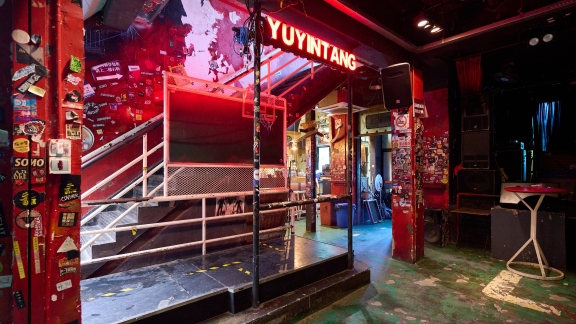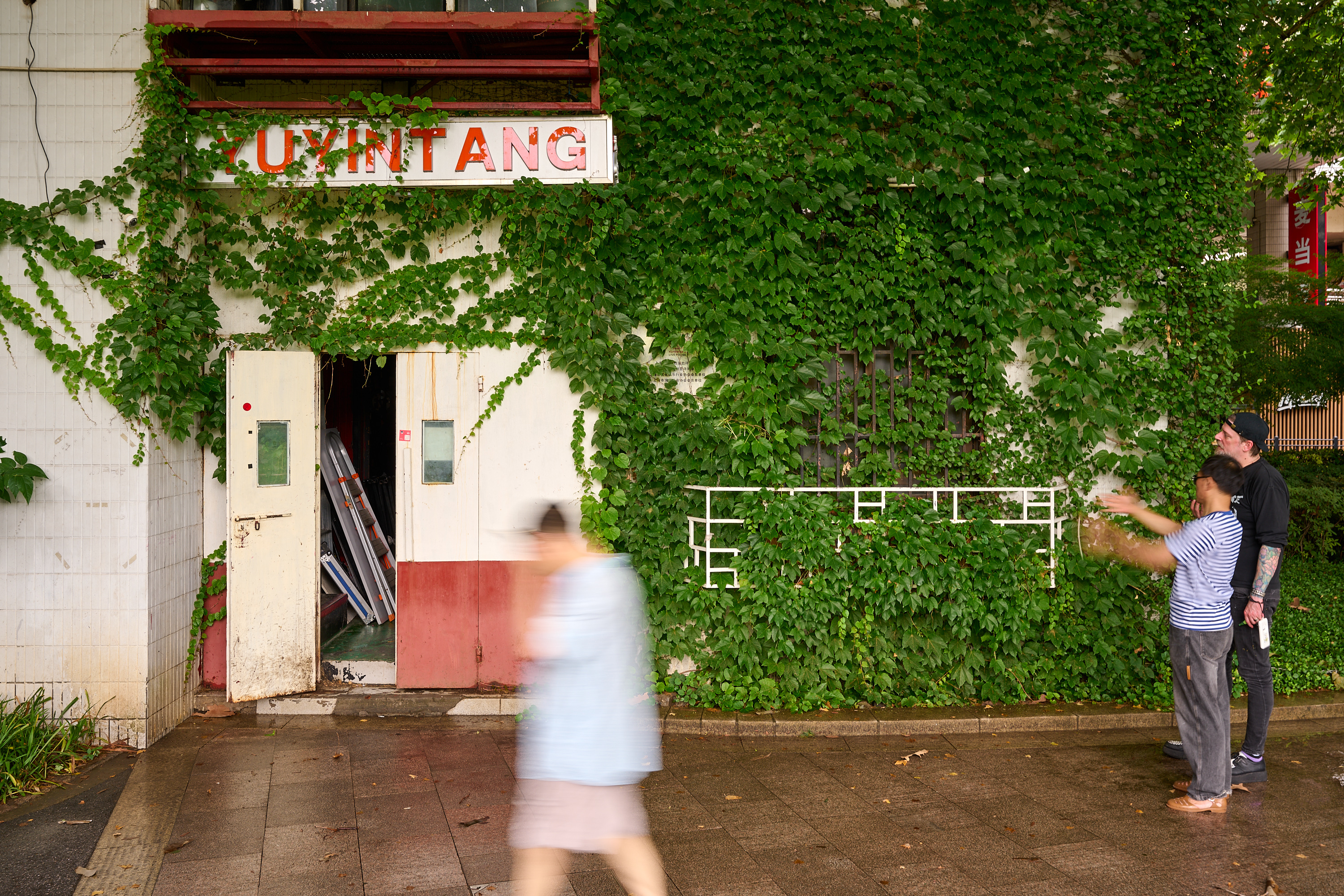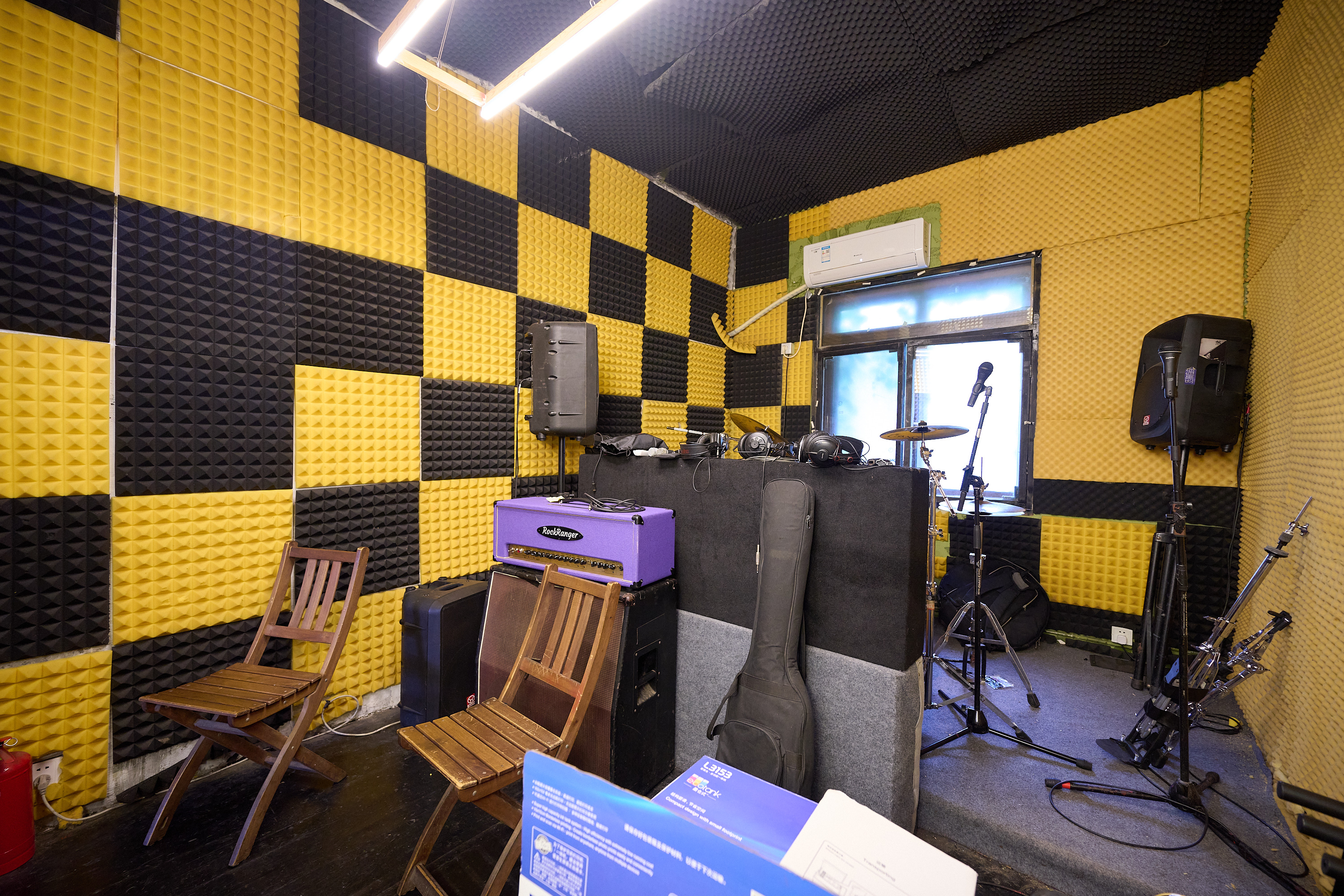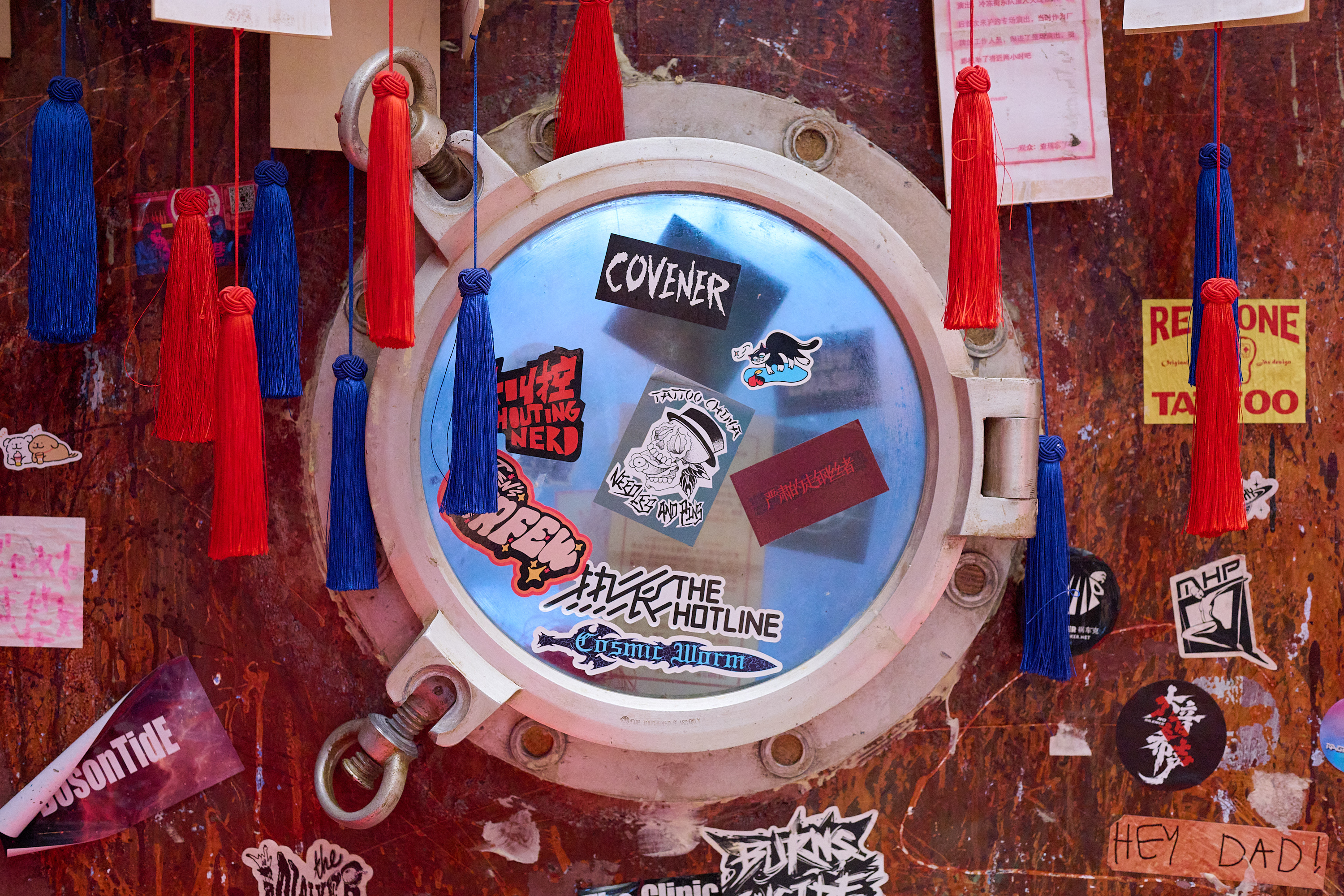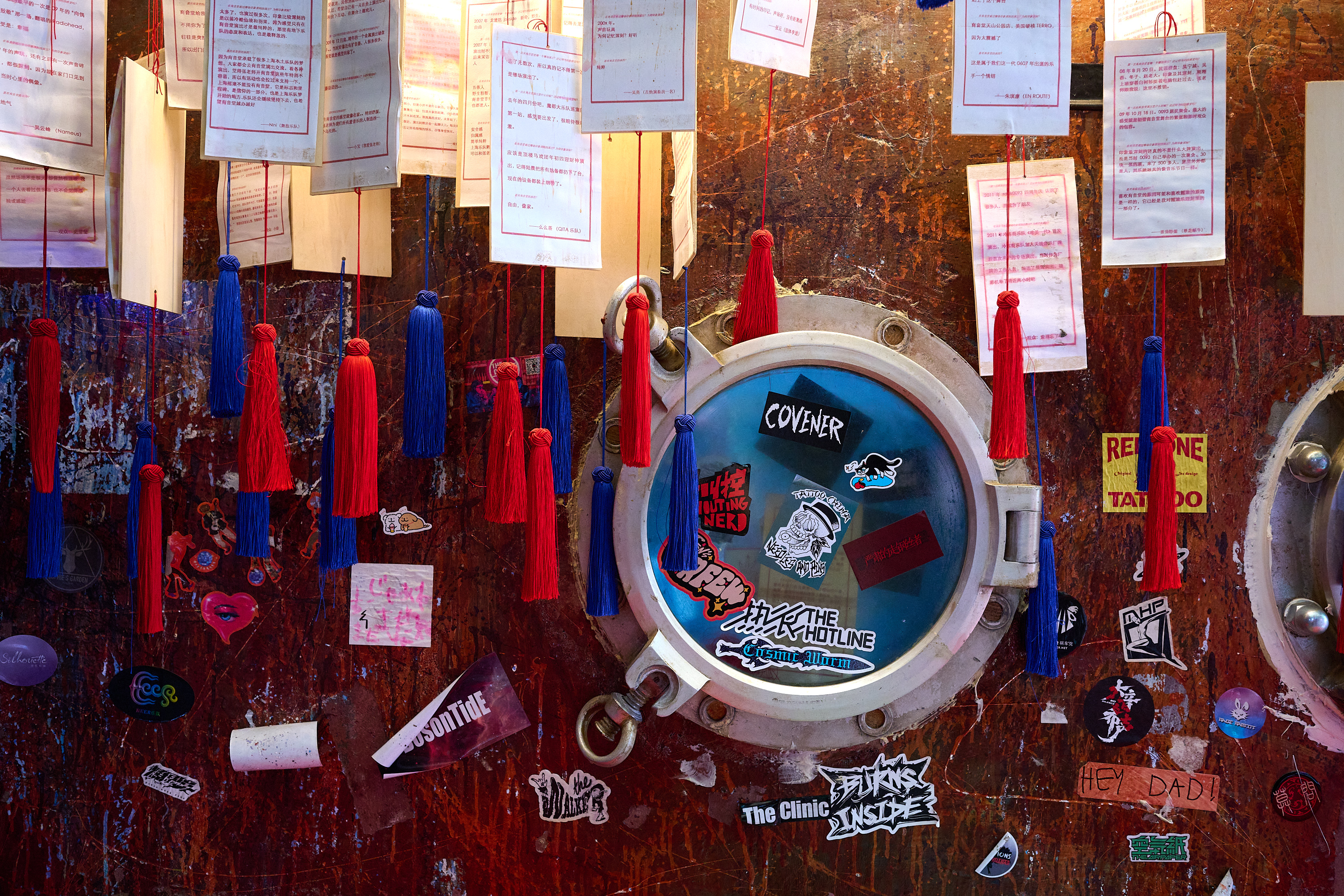
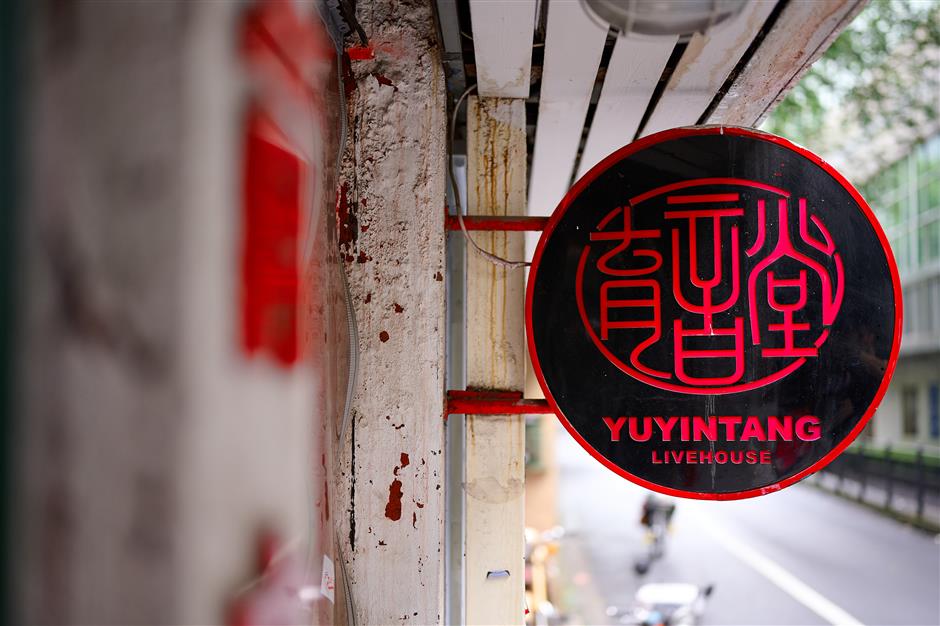
If you've been to Shanghai's iconic live house Yuyintang, you can be forgiven for not noticing all the esoteric, arcane, and straight-up bizarre collectibles, knick-knacks, and bricolage adorning… well, pretty much everywhere.
If you've been to Yuyintang it was probably dark. It was definitely loud. And you had a good excuse to miss the fact that there is a 100 percent real, 100 percent not fake, 100 percent actual bazooka shell hanging from the rack above the bar.
Did you see the giant anchor?
In solemn observance of Yuyintang's passing on June 30, after 20 years of shows at their Kaixuan Road space, we took a tour of the building with one of the bosses, the sunglasses legend himself, Captain Lao Lu.
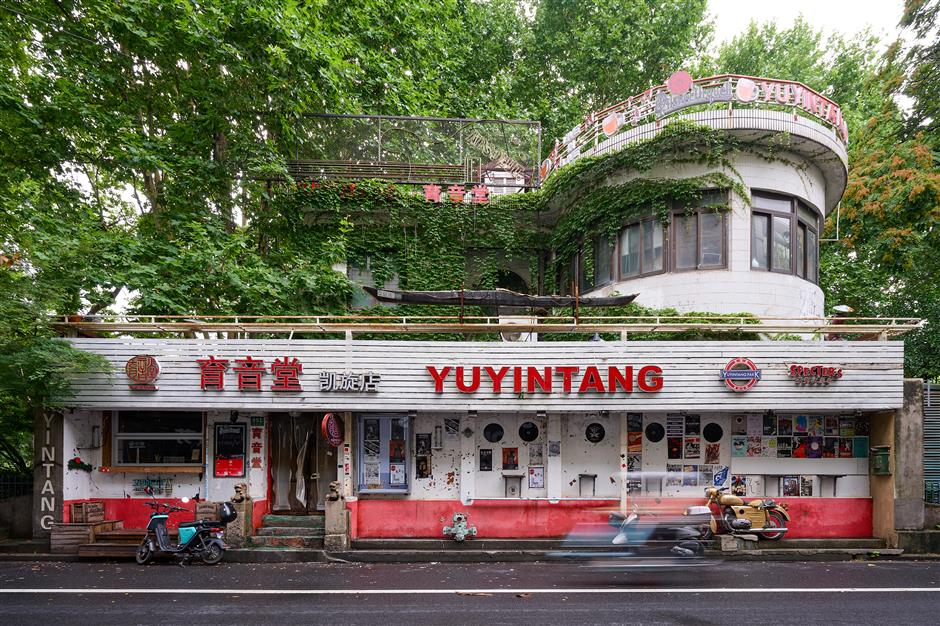
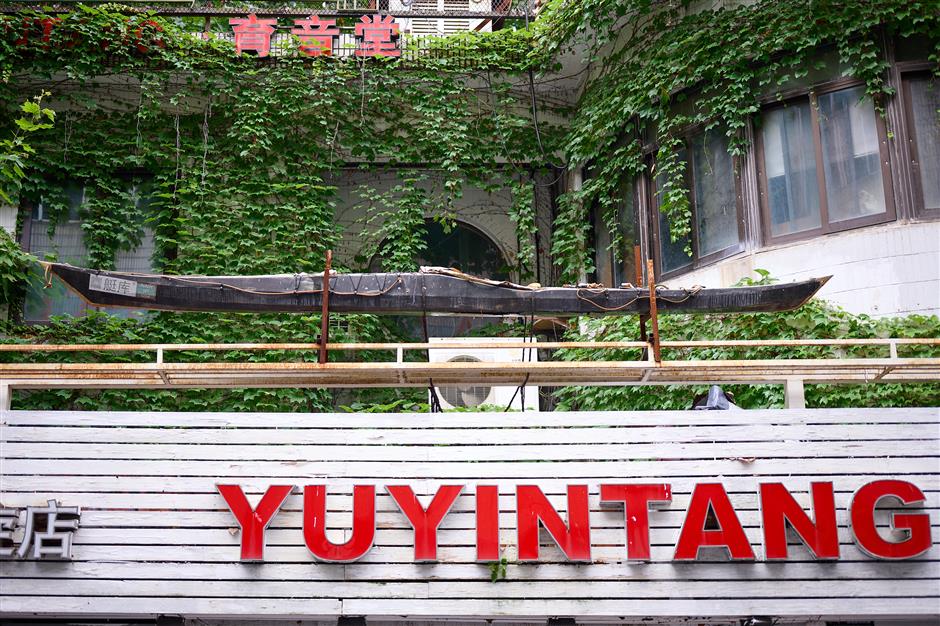
City News Service: I never saw that you had a kayak on the roof. Where did you get a kayak, and… why?
Lao Lu: Oh, from my friend. He has a kayak club, and he gave me one. I was thinking about it because Yuyintang looks like a ship from the outside. It's a rocket ship and you know – "a friend-ship."
City News Service: Yeah, the windows…
Lao Lu: Yeah, I got those from a friend too. He runs a salvage yard in Guangdong, where they break old ships down for scrap. I think these were from a Japanese ship. But yeah, they're real salvaged windows from a boat.
City News Service: It does look like a ship. How much of the building have you changed over the years? I imagine it didn't come looking like this.
Lao Lu: Everything. Outside and inside. The front area used to be a patio garden space, and we built the wall to make it bigger. The stage was on the side, and the bar was where the sound booth was. We moved the bar two or three times. We changed the stairs around too. Changed the orientation. Just to have more audience space and better room in the venue.
It was really very small, and now it's less small. That's what we do: Work with what we have to make the most. The second floor too. It was a band room and another smaller stage, but we put the recording studio in and had a space for an office and band room.
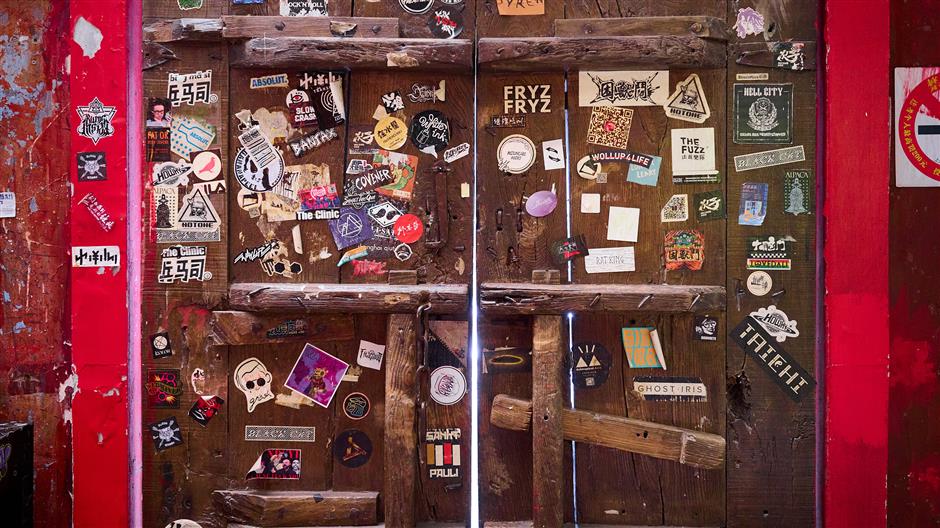
City News Service: I love these old doors at the front. I think this is one of YYT's signature aspects: these old doors.
Lao Lu: Yes, these are also from a friend of mine. He had them from somewhere, and they were in his garden for three years. He got them off an old building. But they were in his garden outside for years, and I thought they must be some strong doors to withstand the weather, and they've been with us since.
City News Service: The placer is covered in stickers. Do you have a favorite sticker? What band has the best sticker?
Lao Lu: [Laughs.] There are too many. If I'm talking to a band who asks, the answer is always, "YOUR band has the best sticker."
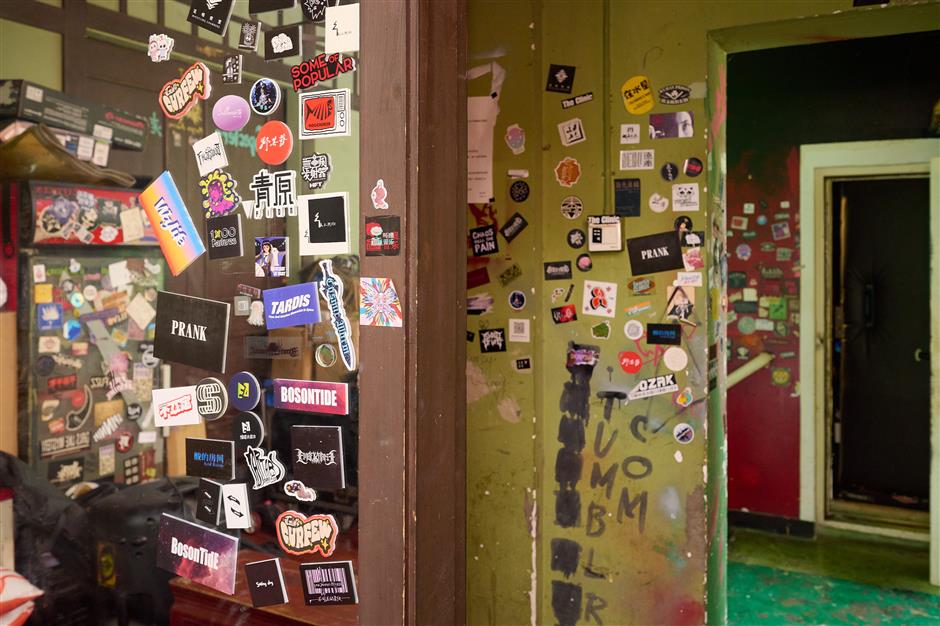
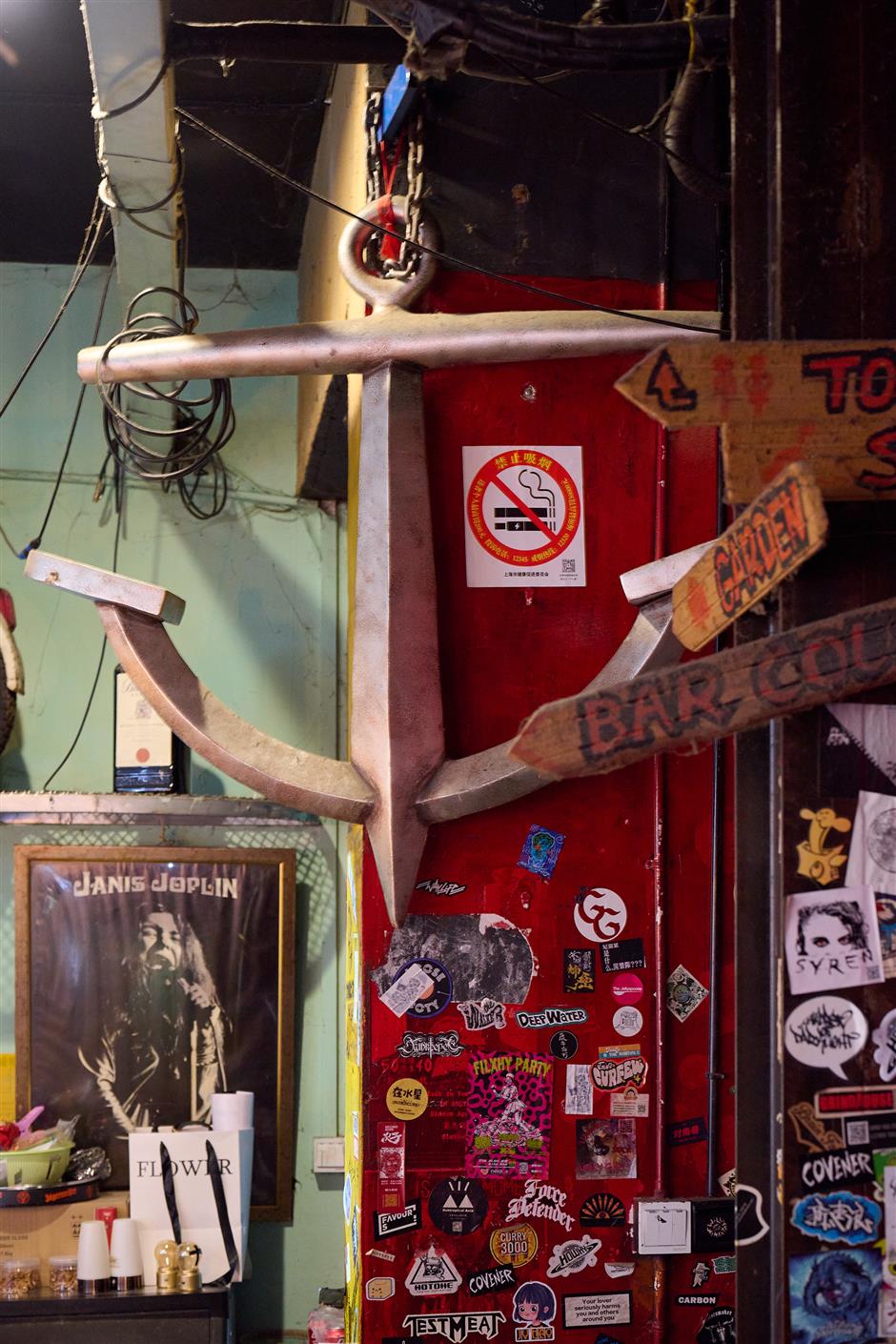
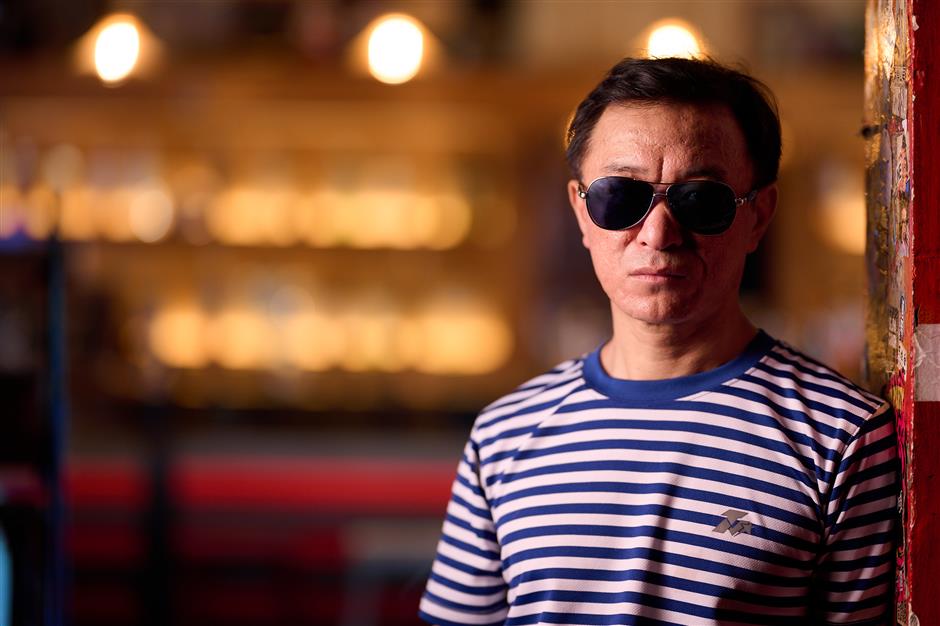
City News Service: I see the nautical theme continue inside here with this giant fish above the bar.
Lao Lu: Yeah, I built that fish! Well, I designed it, and my friend helped weld it right here on the floor. It was during the hard times, you remember. We were closed, and I wanted a project to keep busy. We were closed in 2020 because everyone else was. The whole world was closed at that time. You remember those days. And so here is the big fish, swimming with the current and surviving.
Do you see what the fish is eating there?
That's the Corona virus. [Laughs.]
I still think this fish is very good. I want to keep this. And put it in the next Yuyintang.
And you see the curved bar here – that's the bow of the boat.
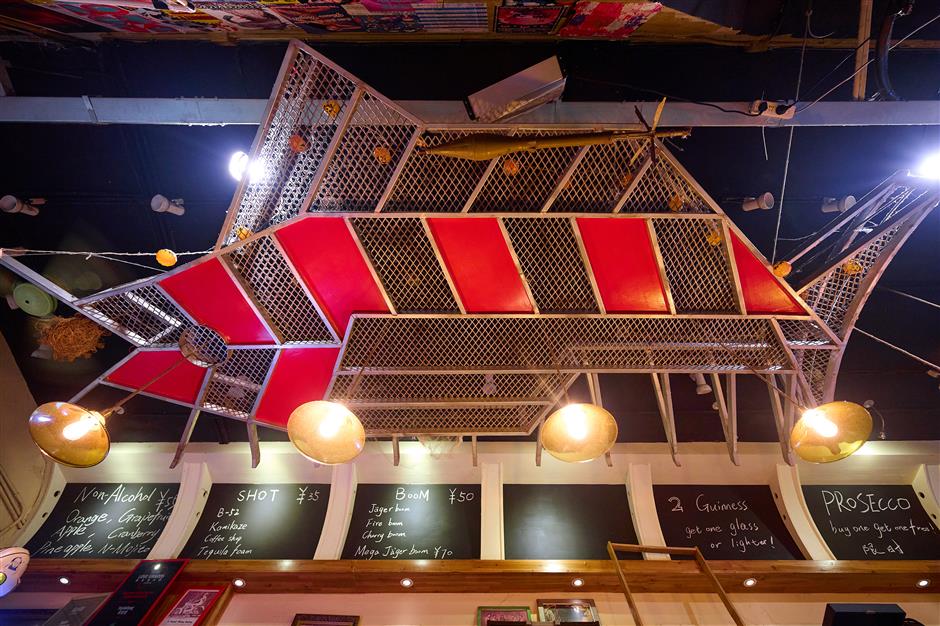
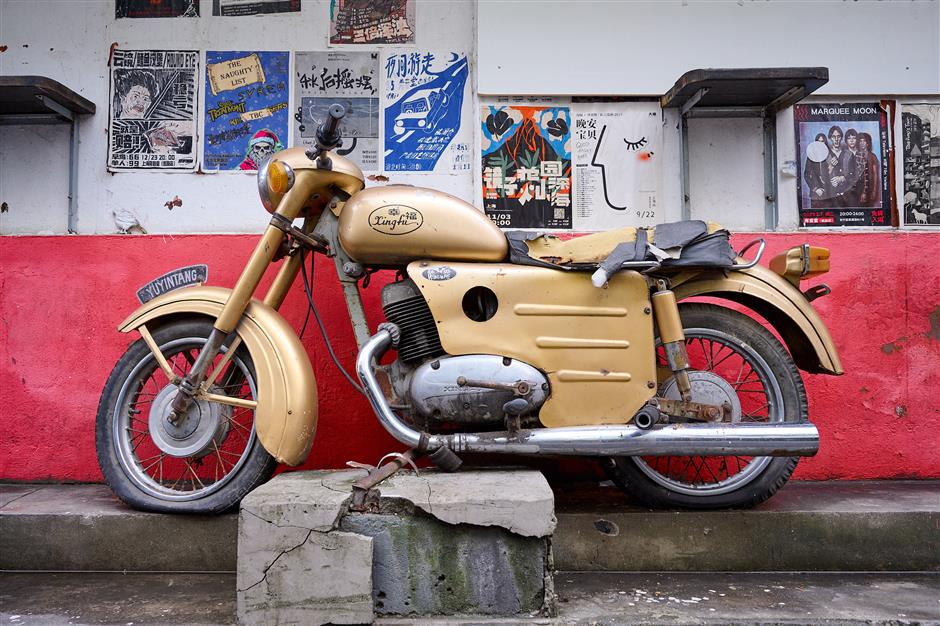
City News Service: What's the story with all the motorcycles?
Lao Lu: Yeah, it's sort of a hobby of mine. I have a lot of old motorcycles from the 1980s. The one behind the bar is a really famous one from the 1980s. You used to see them everywhere. The gold one outside is also a famous Shanghai brand called Happiness. These are all from my younger years, so I just want to keep them.
But the gold one is a bit special because, before the 1990s, you couldn't get imported motorcycles, only Chinese-made ones. After 1993, they went out of business because everyone was buying Japanese motorcycles.
But they made 1,000 of these gold ones as a send-off to the brand so that one is one of those.
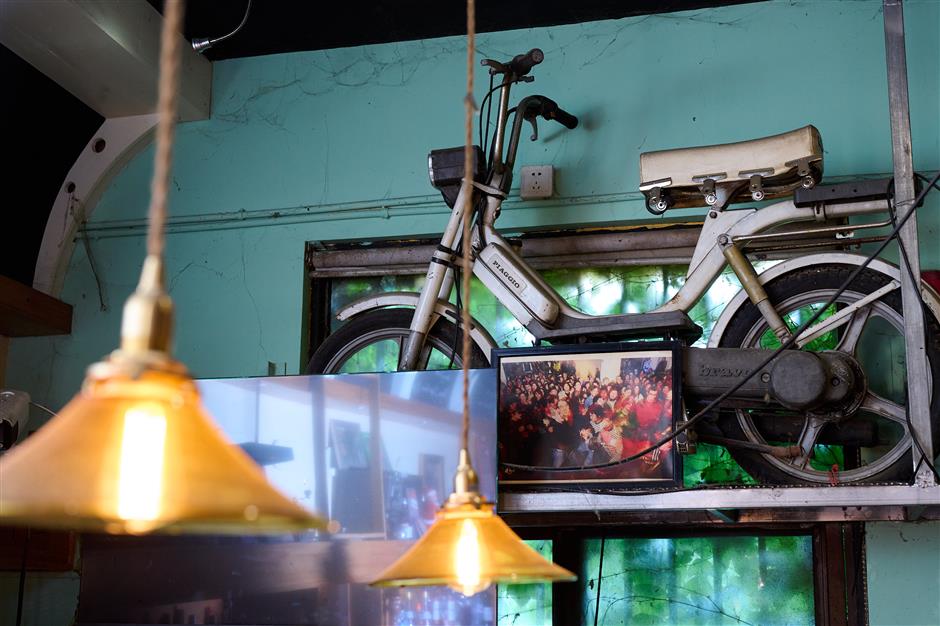
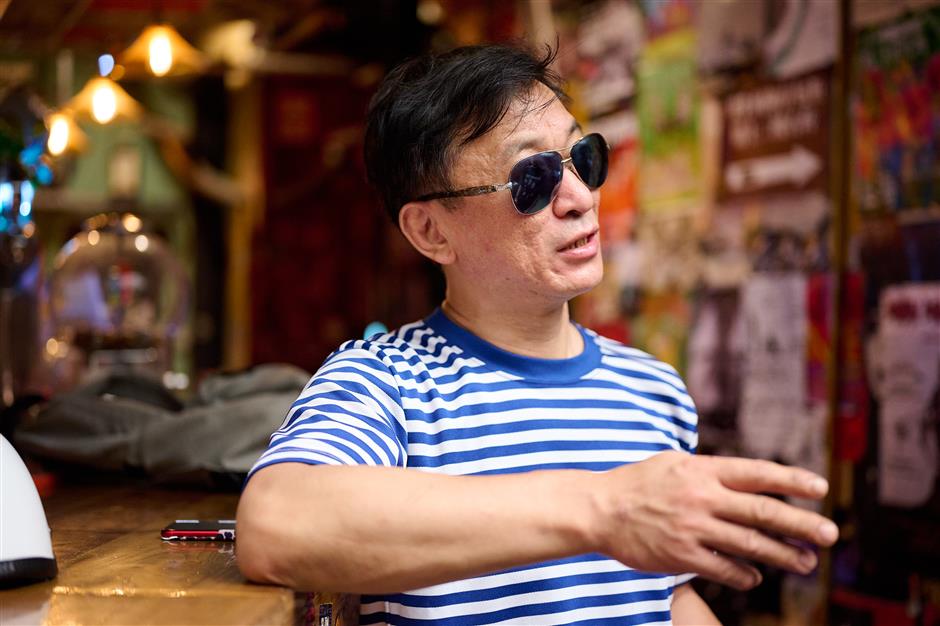
City News Service: So what was the Shanghai music scene like 20 years ago?
Lao Lu: Not very big, of course. Maybe 20 bands. And every single person knew everyone else. The style was the same as now, maybe. Some rock, some pop. But even though it was so small, it was a good time for music. People were writing original music with original lyrics. And the lyrics were good. Maybe the music was simple and not as developed, but it was original, and the lyrics were really good. I had friends who were poets, and they wanted to put their poetry to music, and that's what they did.
I'm still good friends with some. Some are still poets…
I had one come by for the show last night, and he was a part of the concert. I'll send you the poem. It's very good.
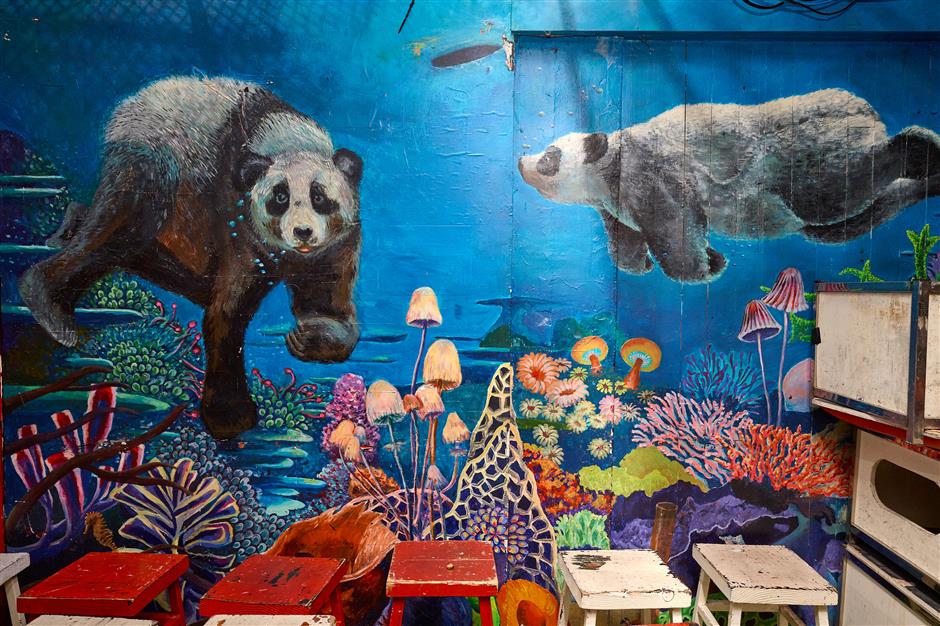
City News Service: Tell me about the murals.
Lao Lu: You know Han Han [singer, guitar player, Duck Fight Goose]? He worked with us for a couple of years, booking bands.
Han Han did that. But Han Han is lazy. [Laughs.] He had many drafts but only managed to draw the outline, so I finished it. He did it for an hour and then left to smoke. But this is Lei Gong. He's the lightning god. Thunder. Electricity…
A good one to have in a rock club.
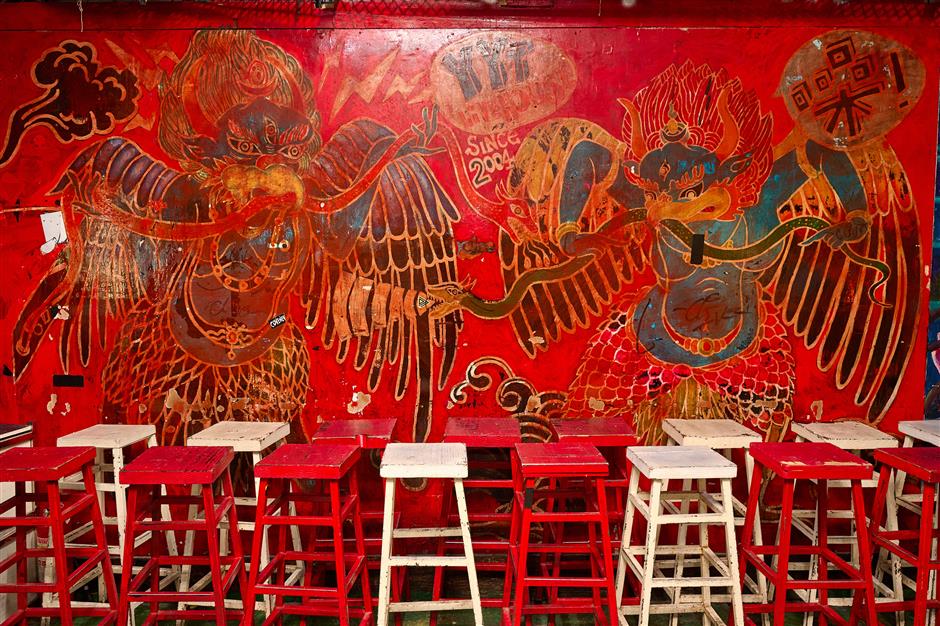
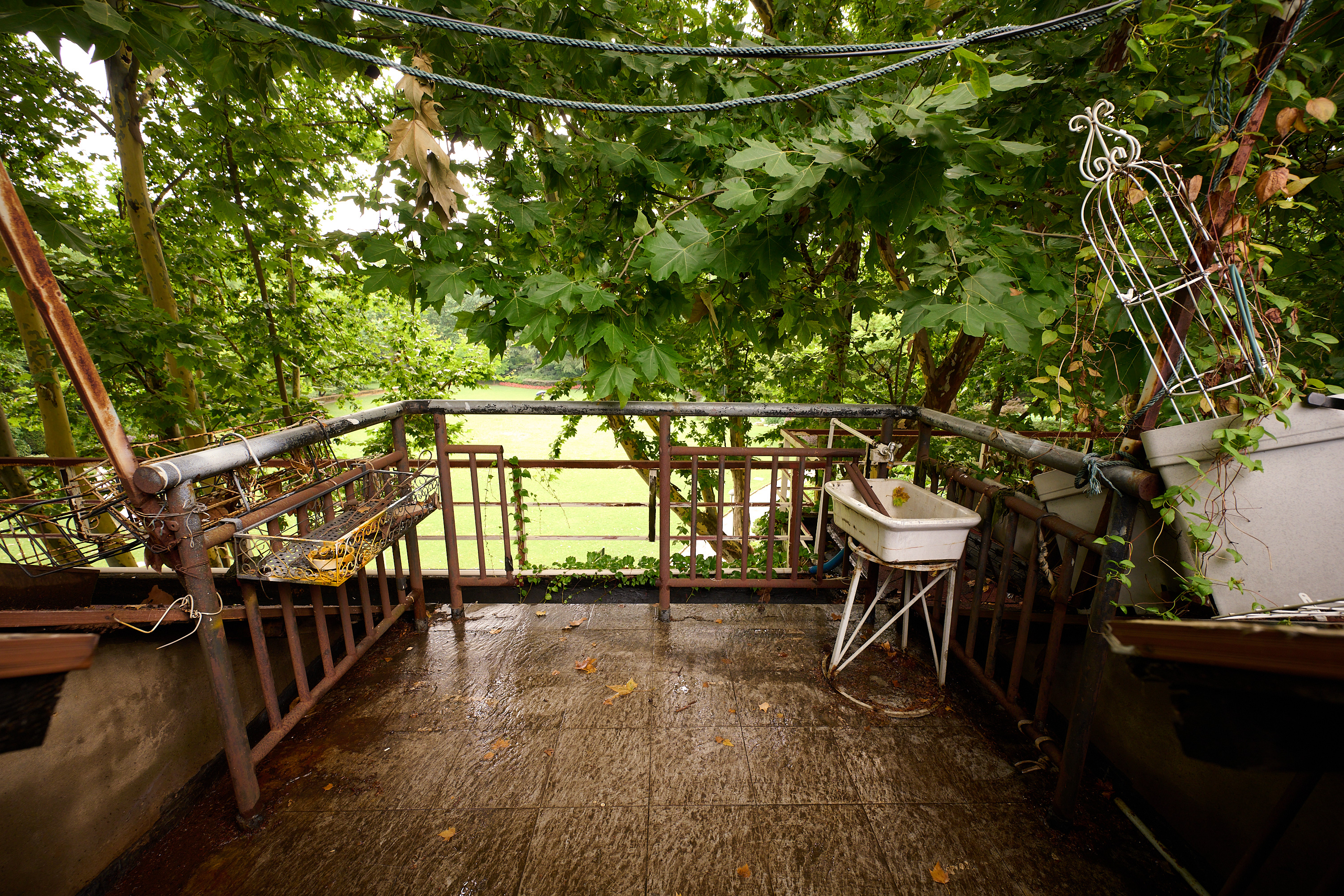
City News Service: Are you going to miss the park? I remember bands used to have soccer games out there.
Lao Lu: Oh yeah, a long time ago. We used to have a Xinjiang barbeque out here too. Because we could have the seating here. One of our best shows was a 24-hour festival. In the morning, after going all night the guests went out and did Taichi with the neighborhood. Two-day-long festival, and we sold 1,000 tickets each day.
But the barbecue was nice. After the show, everyone together would take a photo and come outside for BBQ.
You see these vines here on the building? I planted them 10 years ago, and now they cover the whole building.
City News Service: What do you think of the Shanghai rock scene today?
For the future or now?
City News Service: Both.
Lao Lu: Well, we still have to develop. But the base is good. And the next generation is coming. Now, we have many players and many small bands. So the potential is there for bands to grow up.
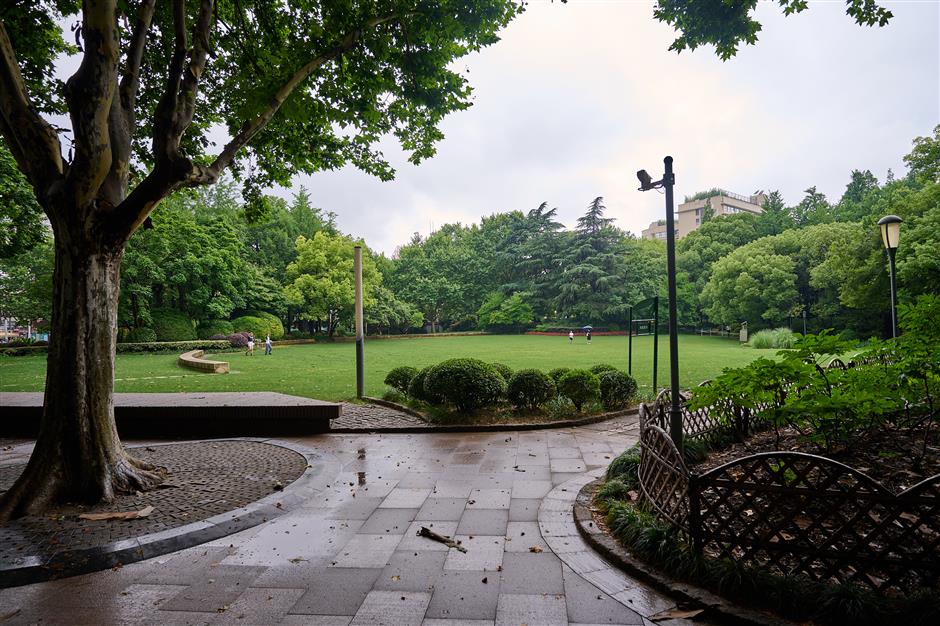
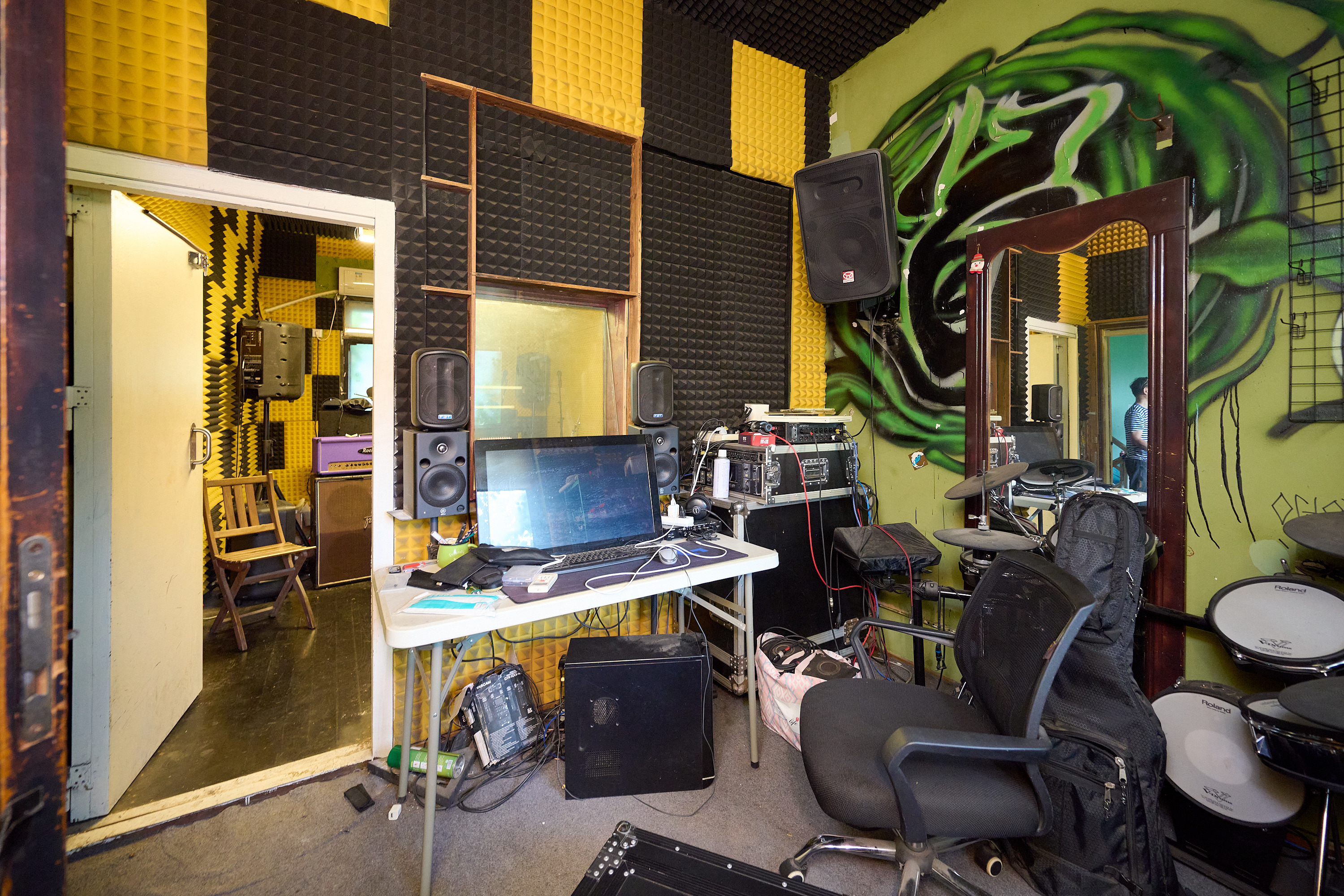
City News Service: We're upstairs now. So this used to be the foosball room. But a couple of years ago, you turned it into a recording studio?
Lao Lu: Yes, a recording and band practice room. In the future, we want to open something like this again. We have a bigger space that we might be able to open on the fifth floor of the Singer space. But it's big – maybe 200 square meters – so it can have a big stage. And we can have it there for young bands to practice on. Because bands need practice on a big stage to help them grow up. So people can record, and people can practice how they play on a big stage, which is important. Shanghai doesn't really have this now.
And then maybe it can be a place for musicians to come play and meet. Maybe they can jam and then get together to create something. Maybe like a band workshop.
This is the future.
City News Service: Who's this guy?
Lao Lu: Oh! Guan Gong. This is the God of... do you know? Brotherhood. Friendship. Usually, you see him in like a kungfu place. But he's here too.
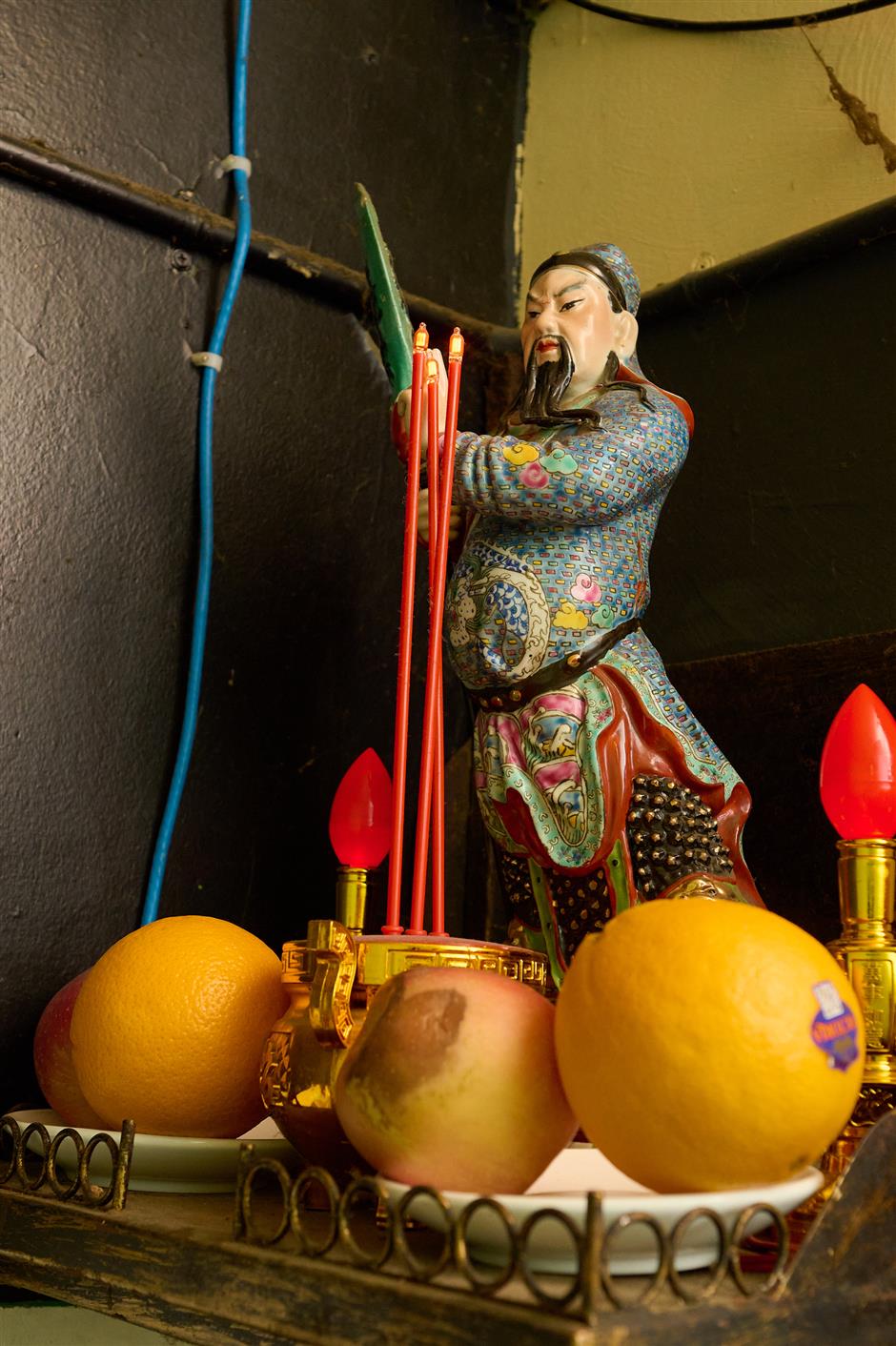
City News Service: This color comes up a lot. This must be your favorite color.
Lao Lu: Yeah, when I grew up, everything was this color. This color was really popular in the 1980s, so it's something from my youth as well. I put it there because when I was born and I opened my eyes, I saw this color.
City News Service: What does your family think about you opening rock clubs? Do they like the business?
Lao Lu: Well, my parents got divorced when I was in high school, and my father wasn't in the picture for a while after that. Further down the line, we linked up again when we were both older. But he comes around a lot now to help me with the upkeep of the place and the renovations. He helped with the roof downstairs.
City News Service: What's the history of the building? What was the house before Yuyintang?
Lao Lu: Well, that was a long time ago. 20 years. It was one of a number of smaller, poorer houses along Kaixuan Road. At the time, it was a poorer area. This is before the metro station – there was a train running down that road out front. This was before even the Yan'an Express Way. However, this building was used as the management office for the ongoing construction in the area. When they were done, I got it right after that.
At the time, I was working in video, film, and animation production, and so this was our home base for that – for our animation and video projects. But business wasn't so good at the time, so I linked with Zhang Haisheng [YYT partner] and a few others to change the space into a live house.
It's been a good home for us, though. It's a good location, with the metro right there, and there are no neighbors to complain about noise.
And Changning is a nice place. It's more quiet than Jing'an or Huangpu. It has its history; even now, though, many things have changed.
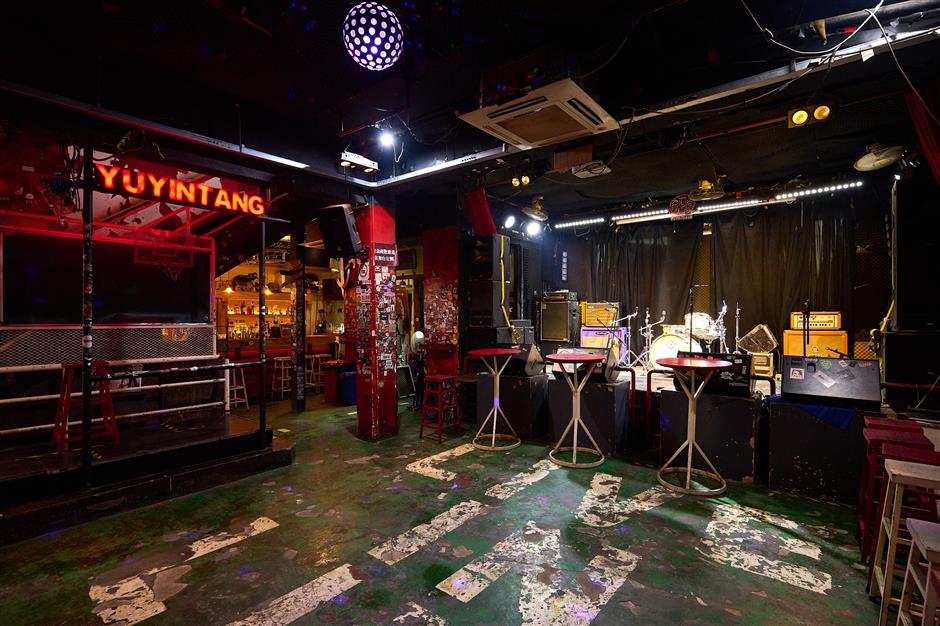
City News Service: Looking back, do you have a few favorite concerts from over the years? I guess if you're doing several hundred shows a year, it's kind of a blur.
Lao Lu: Yeah, we've had some good periods. Some good eras. I remember back around 2014 was a high point for us. We had some big shows around then. And a lot of touring bands from outside China coming through.
It's starting to come back a bit. We are seeing more and more bands from Europe and Japan coming.
City News Service: Did you ever think about opening Yuyintang in other cities in China? Beijing, Chengdu, or Guangzhou?
Lao Lu: No, we never seriously considered it. Yuyintang is so tied to a Shanghai identity that we didn't think it would work. Having touring bands is fine but the venue has to come from the community and be a part of the community. It's location culture.
Also, you need the right people to be there every night and run the place.
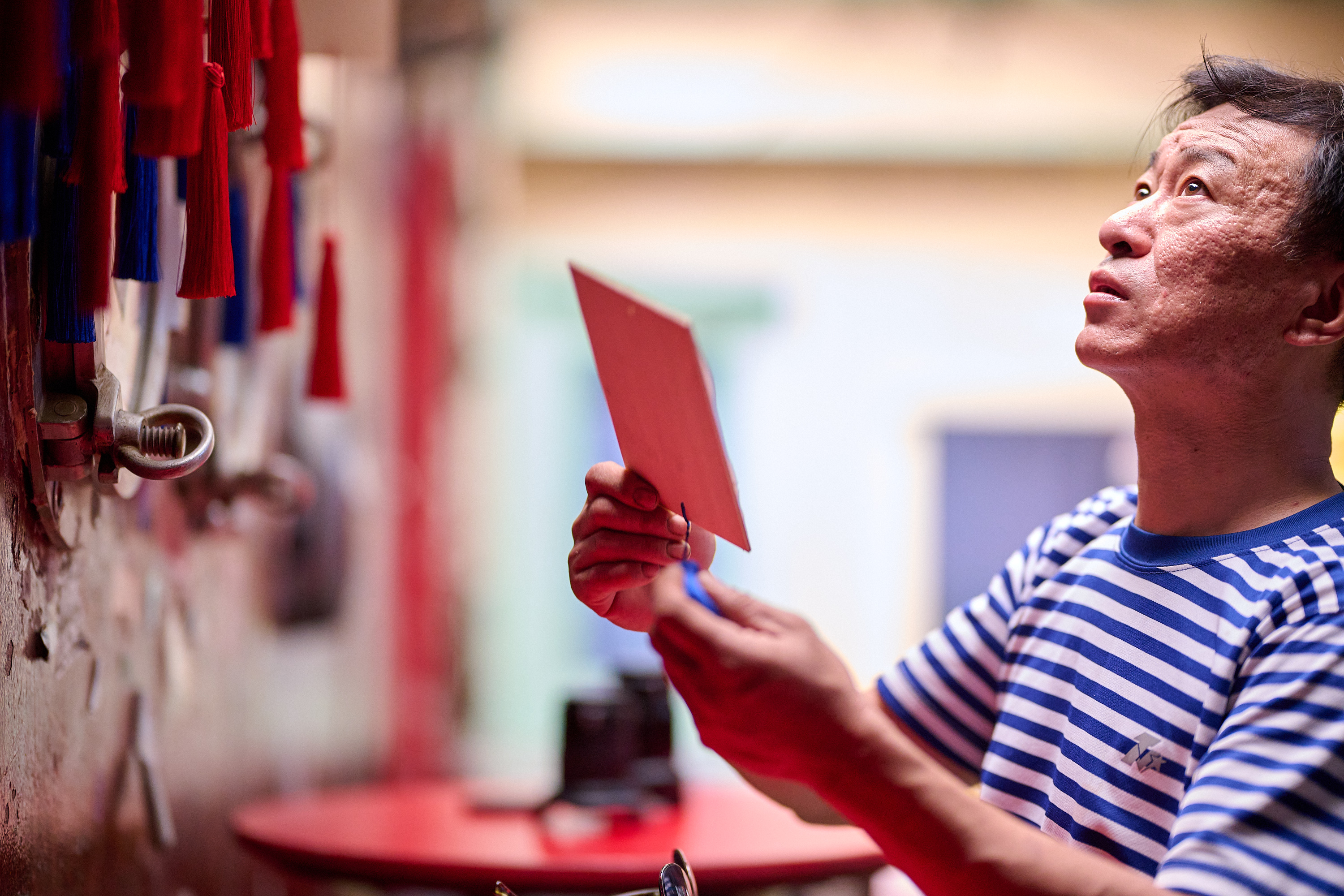
City News Service: What are these?
Lao Lu: Oh, these are positive comments that guests have made online. We just printed some up and put them here. This one is" "First time coming to Shanghai and I love it."
Just things like that. I'll keep these too. Just good memories.
City News Service: You've got a lot of them.
Yes.
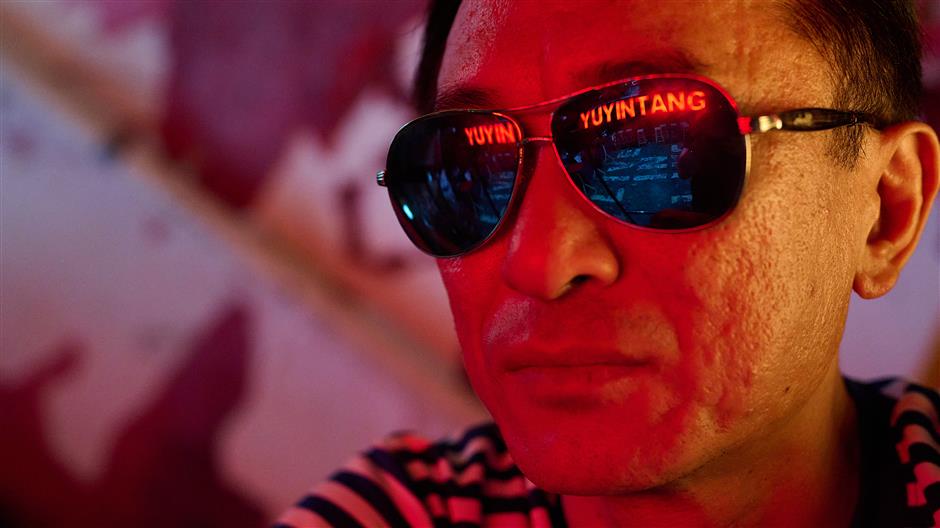
City News Service: Actually, you've had a lot of positive comments recently. Your closing announcement on Yuyintang got over 200,000 views! And the comments people left must have been nice.
Lao Lu: Yeah, it's happy and sad at the same time. It's great everyone has shown support, and it's great to know we were an important part of people's lives. I always think Yuyintang is for the youth. It's for young people at the start of their lives. So when people say they will miss Yuyintang, I think they just miss their youth. We were there at the start of people's lives, and then they went on and grew up. Some stayed in music, and we still see them, but most, even if we don't, we were still there. This is important. And they know us.
You know, it's like a station. And we are the station people start at.
Older ships die, and then new ships come. But somebody is always alive to make the connections.
But we aren't going anywhere either. We have our other venues. And we want to bring the original Yuyintang back down the line sometime. When the time is right.

